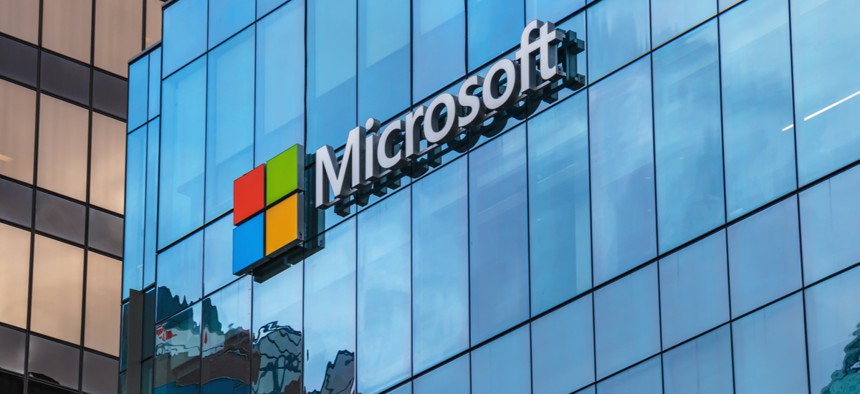Microsoft Commits to Defense Work While Attempting to Soothe Employees

Volodymyr Kyrylyuk/Shutterstock.com
Microsoft firmly committed to supporting the U.S. military but could shift employees who have ethical concerns about some projects to other work.
Microsoft’s leadership team vowed Friday to continue serving the U.S. government and military amid ethical concerns of some employees and a growing national debate regarding how tech companies should serve the government.
“We want the people of this country and especially the people who serve this country to know that we at Microsoft have their back. They will have access to the best technology that we create,” said Microsoft President Brad Smith, in a blog post. “At the same time, we appreciate that technology is creating new ethical and policy issues that the country needs to address in a thoughtful and wise manner. That’s why it’s important that we engage as a company in the public dialogue on these issues.”
In the blog post, Smith said he and Microsoft Chief Executive Officer Satya Nadella addressed the debate internally Thursday in the company’s monthly Q&A session, which all employees were invited to.
In a Medium blog post published on Oct. 12, an alleged group of anonymous Microsoft employees voiced opposition to the company bidding on the Pentagon’s $10 billion Joint Enterprise Defense Infrastructure contract. Bids for the contract, which would put a single cloud service provider in charge of swaths of classified data, were due the same day, and the company submitted a bid nonetheless. Both Microsoft and Amazon leaders defended their company’s defense work.
Google helped initiate the tech ethics debate, first when it opted not to renew an artificial intelligence-based contract with the Pentagon in June, and again in early October when it pulled its potential JEDI bid, citing ethical concerns among its employees. Over the week, several reports have further fueled the debate, linking tech companies to executing some of the administration’s most controversial policies.
In this debate, Microsoft leaves little doubt where it stands. Smith said Microsoft has served the Defense Department for 40 years and is not planning to stop any time soon.
“We believe in the strong defense of the United States and we want the people who defend it to have access to the nation’s best technology, including from Microsoft,” Smith said. “We appreciate the important new ethical and policy issues that artificial intelligence is creating for weapons and warfare. We want to use our knowledge and voice as a corporate citizen.”
Smith said the military is no stranger to ethics issues and the company would continue to engage not only publicly but “proactively cross the U.S. government to advocate for policies and laws that will ensure that AI and other new technologies are used responsibly and ethically.”
Smith, however, acknowledged that some Microsoft employees “may have different views” or want to work on certain projects they find unethical.
“As is always the case, if our employees want to work on a different project or team–for whatever reason–we want them to know we support talent mobility. Given our size and product diversity, we often have open jobs across the company and we want people to look for the work they want to do, including with help from Microsoft’s HR team,” Smith said.
NEXT STORY: Busting IT modernization myths






